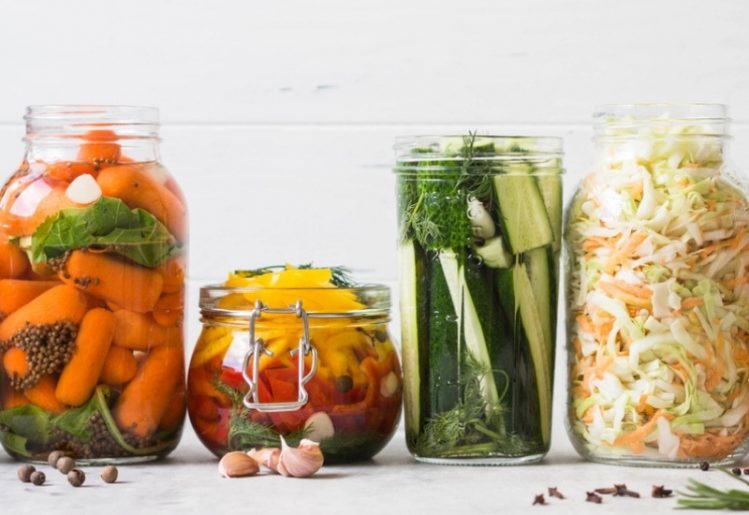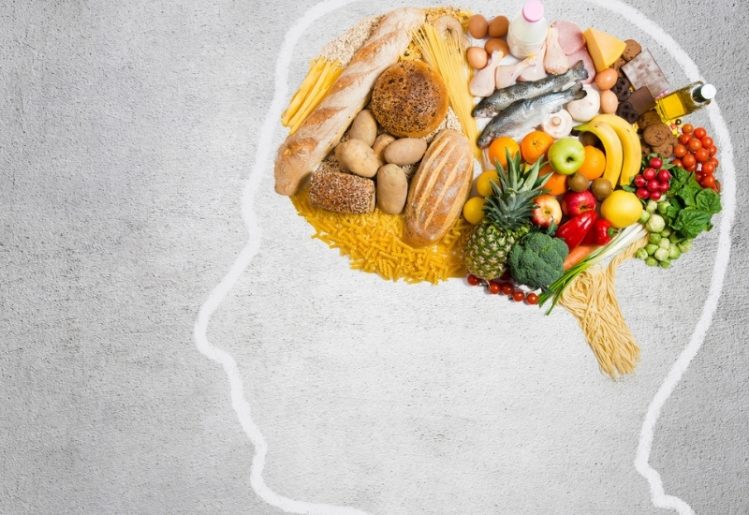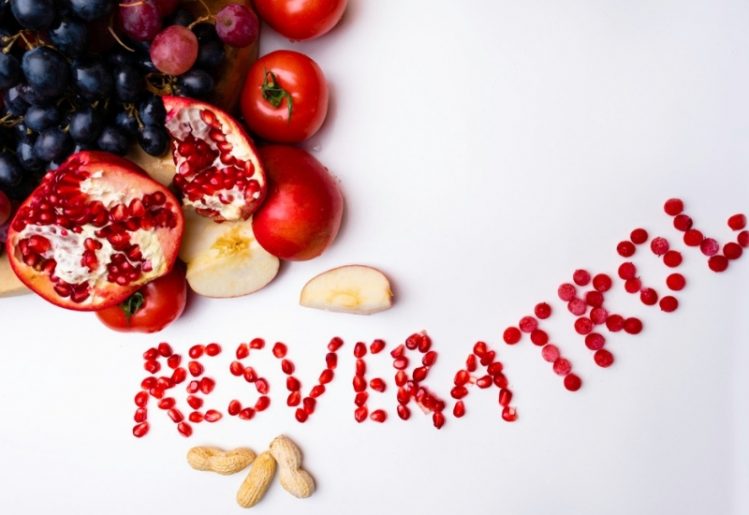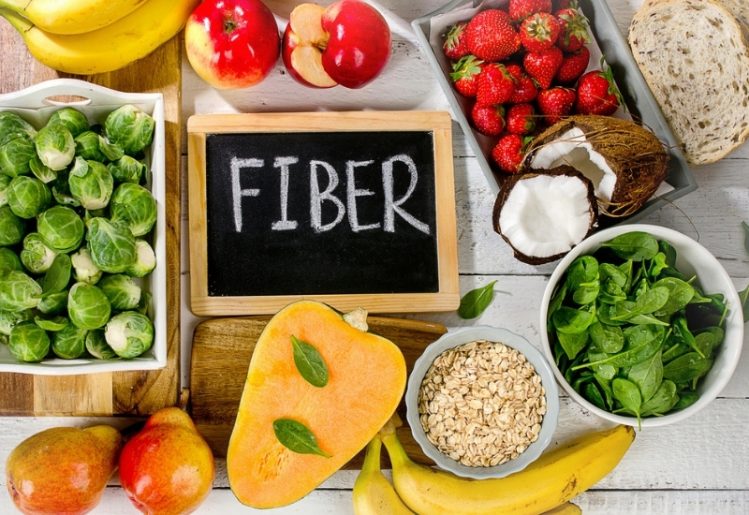Winter can put a damper on immune system function, energy levels and mood. Cooler temperatures and shorter days often translate into less sun exposure and reduced physical activity. This can impact serotonin levels and mood, as well as immune function and energy levels. Cold and flu season, along with a busy holiday season, can add to the challenges of the winter season. This year, plan ahead to overcome those winter challenges with the help of a winter nutritional strategy. Taking a targeted approach to winter nutrition and diet can help support physical health and overall well-being throughout the winter months.
Keep It Real For Better Health
 One of the most important things you can do nutritionally to support overall health and well-being is to eat real food. Eliminate as many processed foods as possible from the daily diet. Be especially ruthless in cutting out highly processed foods. Highly processed foods tend to offer little to no nutritional value or fiber. They also tend to be high in sugars, sodium, unhealthy fats and assorted chemicals.
One of the most important things you can do nutritionally to support overall health and well-being is to eat real food. Eliminate as many processed foods as possible from the daily diet. Be especially ruthless in cutting out highly processed foods. Highly processed foods tend to offer little to no nutritional value or fiber. They also tend to be high in sugars, sodium, unhealthy fats and assorted chemicals.
Not only do processed foods provide few health benefits, but many are also actively damaging to health, contributing to a broad range of chronic health conditions and diseases including type 2 diabetes, heart disease and high blood pressure. Real food is the foundation a nutrient-rich diet is built upon.
Feel Better With Smart Carbohydrate Choices
With the reduced sun exposure and the decrease in physical activity that the winter months can bring, serotonin levels can go down. This reduction can severely impact mood in people with a higher risk of developing season-related depression. As the winter season settles in, many people find themselves craving carbohydrates. That’s not surprising, because carbs influence serotonin production via the release of insulin. Insulin reduces the concentration of amino acids in the blood, except for tryptophan, allowing it to make its way to the brain, where it works in the production of serotonin.
Playing a key role in energy production, carbohydrates are an important part of the diet, typically making up between 45 and 65 percent of daily calories. However, not all carbs are created equal. There are bad carbs: those found in sweets and highly processed foods. Bad carbs offer a quick burst of simple sugar energy, but don’t bring much nutritional value to the table. Good carbs are more complex. They typically offer plenty of nutrition and fiber. Complex carbs digest slower, without the sugar energy crash caused by many simple, highly processed carbs.
Choose high-quality, nutrient-rich carbohydrates instead of highly processed simple carbs. Make sure to eat plenty of fresh vegetables, fresh fruit, legumes, whole grains and nuts. Maximize the nutritional benefits of the calories consumed in a day by choosing complex carbs from real food, avoiding the nutritionally bankrupt carbs found in highly processed foods. Taking this nutritional approach can help support serotonin production, mood, energy levels and immune system function throughout the winter.
Target Immune System Support
The winter months can increase the demands made on the immune system in a number of ways. The holiday season can be stressful and exhausting, eating habits can suffer and there’s always the cold and flu season to contend with. That makes supporting immune system function and health an important element of a winter nutritional strategy.
There are a number of important nutrients your body needs for a healthy immune system all winter long. Vitamin D is essential to the function and health of the immune system. Found in egg yolks, salmon, tuna, beef liver and fortified dairy products, numerous studies have confirmed the critical role of this nutrient in immune system performance. Antioxidant vitamins C and A also support healthy immunity, another reason why fresh fruits and vegetables must play a starring role in winter nutrition. Zinc is another important immune system supporting nutrient, so make sure to include foods such as poultry, eggs, whole grains and fish in the daily diet.
Focus On Energy Nutrients, Nourish The Mind
 Maintaining energy levels isn’t just about feeling physically energetic. Proper energy levels also impact the mind – both mood and cognitive function. Many people feel sluggish during the winter months with their shorter days and longer nights.
Maintaining energy levels isn’t just about feeling physically energetic. Proper energy levels also impact the mind – both mood and cognitive function. Many people feel sluggish during the winter months with their shorter days and longer nights.
Make sure to get enough iron, because deficiencies can have a dramatic effect on energy levels. Iron is essential to the process that moves oxygen throughout the body. Animal sources of iron, such as meat and fish, are easier for the body to use. However, plant-based foods, including beans and nuts, can also provide usable iron. The B vitamin complex is also closely aligned with both energy production and mental health and well-being, so eat plenty of leafy green vegetables, legumes and whole grains.
Healthy, Nourishing Winter Recipes
Immune-Boosting Chicken Soup
This hearty chicken soup is filled with powerful minerals, antibacterial herbs and other immune-boosting ingredients to deeply nourish your body during the cold, dark winter months. Adding the optional kombu (dried kelp) provides additional valuable minerals, while burdock root, also optional, contains prebiotics to support digestive health and immunity.
Ingredients
Sprigs of fresh rosemary, sage and thyme
1 bay leaf
1 strip kombu (optional)
1 ½ – 2 lbs. bone-in chicken
12 c. water or low-sodium chicken broth
2 tbsp. apple cider vinegar
2 tbsp. olive oil
1 onion, diced
1 lb. potatoes, diced
1 burdock root, peeled and diced (optional)
12 oz. shiitake mushrooms, sliced
4 carrots, chopped
4 stalks celery, chopped
4 garlic cloves, minced
Salt and pepper, to taste
2-3 c. kale, chopped
Directions
- Tie together the sprigs of fresh rosemary, sage and thyme with kitchen twine to form an herb bouquet.
- Place chicken, herb bouquet, bay leaf, apple cider vinegar and kombu (optional) in a large pot. Pour in chicken broth or water. Bring to a boil, skimming off any surface foam that forms. Reduce heat and simmer for approximately one hour.
- Remove chicken, herb bouquet, bay leaf and kombu from the broth. Set chicken aside to cool, and discard the other materials.
- In a separate large pot, heat the olive oil over medium heat. Saute the onion until it’s translucent (approximately 3 minutes). Add potatoes, burdock root, mushrooms, carrots, celery and garlic. Continue to saute for another 2-3 minutes.
- Pour chicken broth into the pot with the vegetables and bring to a boil. Reduce heat, cover and simmer approximately 20 minutes, or until vegetables are tender.
- As the soup cooks, remove the meat from the chicken. Cut chicken into small, bite-size pieces.
- Once the vegetables are tender, add chicken meat and kale. Cook for an additional 3-5 minutes, or until kale is tender. Season to taste with salt and pepper.
Hearty Roasted Vegetables
Tasty roasted vegetables are not only delicious and nutritious, they are a wonderful way to “eat the rainbow” and get a variety of vitamins in your diet, even in winter.
Ingredients
1 onion, cubed
1 head of broccoli, chopped
2 stalks of celery, chopped
3 carrots, chopped
2 turnips, peeled and cut into 1-inch pieces
1 sweet potato, peeled and cut into 1-inch pieces
1 c. shiitake mushrooms, cut in half
1 beet, peeled and cut into 1-inch pieces
2 tbsp. olive oil
Salt and pepper, to taste
Directions
- Preheat oven to 400 degrees.
- In a large bowl, combine vegetables with olive oil. Toss until completely coated. Add pepper and salt to taste.
- Spray a large baking sheet with cooking spray. Pour vegetables onto the baking sheet, arranging evenly across the sheet.
- Roast vegetables for 20 minutes. Stir. Continue roasting approximately 20 – 25 minutes more, or until vegetables reach desired tenderness.
Warm Golden Chai
Warm chai is a wonderful, healing beverage that provides inflammation-fighting and immune-boosting spices and is chock full of powerful antioxidants. Cardamom and black pepper are also known for their ability to promote healthy digestion.
Ingredients
4 c. unsweetened almond milk (or milk of choice)
¾ tsp. cinnamon
¾ tsp. turmeric
¼ tsp. ginger
¼ tsp. nutmeg
¼ tsp. cardamom
1/8 tsp. black pepper
¼ tsp. vanilla extract
2 tbsp. raw honey
Directions
- Put all ingredients into a blender; blend until smooth.
- Pour mixture into a saucepan. Bring to a boil over medium heat. Reduce heat to low and simmer for approximately 3 minutes.
- Pour hot chai into mugs and enjoy!
Play It Safe With Winter Nutrition
Because of the deep connections between diet and health, even those that typically eat well can benefit from nutritional supplements, particularly as an important component of winter nutrition. Some nutrients, like vitamin D, can be a challenge to get entirely from food. The amount of nutrients in fruits and vegetables depends on many factors, such as soil quality, that are out of the average consumer’s control. Nutritional supplements that provide a wide variety of high-quality vitamins and minerals are a great way to bridge the occasional nutritional gap.
 As women near menopause, they can begin experiencing any of the following symptoms:
As women near menopause, they can begin experiencing any of the following symptoms: Estrogenic herbs
Estrogenic herbs In the simplest terms, inflammation is the body’s way of responding to external threats and injury. Inflammation occurs when white blood cells are mobilized in the tissues or blood in an attempt to protect the body. As a result, blood flow is increased to the area that is infected or injured. Swelling may occur as the chemicals cause fluid to leak into the tissues, producing redness and skin that is warm to the touch.
In the simplest terms, inflammation is the body’s way of responding to external threats and injury. Inflammation occurs when white blood cells are mobilized in the tissues or blood in an attempt to protect the body. As a result, blood flow is increased to the area that is infected or injured. Swelling may occur as the chemicals cause fluid to leak into the tissues, producing redness and skin that is warm to the touch. The good news is that there are steps that you can take now to support healthy aging by protecting the body against inflammation. Medical professionals are particularly excited about the
The good news is that there are steps that you can take now to support healthy aging by protecting the body against inflammation. Medical professionals are particularly excited about the  Type 2 diabetes is usually preceded by a condition called insulin resistance, which occurs when the body’s cells exhibit increased tolerance to insulin, a hormone in the bloodstream. As a result, insulin is unable to perform its crucial function of regulating glucose levels within the blood.
Type 2 diabetes is usually preceded by a condition called insulin resistance, which occurs when the body’s cells exhibit increased tolerance to insulin, a hormone in the bloodstream. As a result, insulin is unable to perform its crucial function of regulating glucose levels within the blood. One of the ways your gut microbiome benefits health is by supporting the immune system. Unfortunately, increased stress compromises the immune system, requiring gut bacteria to concentrate on supplementing immunity instead of performing other necessary functions. It’s possible to avoid this situation by taking time to relax and reduce stress. You can do this through meditation, yoga, exercise or taking up a hobby that you find enjoyable.
One of the ways your gut microbiome benefits health is by supporting the immune system. Unfortunately, increased stress compromises the immune system, requiring gut bacteria to concentrate on supplementing immunity instead of performing other necessary functions. It’s possible to avoid this situation by taking time to relax and reduce stress. You can do this through meditation, yoga, exercise or taking up a hobby that you find enjoyable. While
While  Instead of using your electronic device, create a relaxation ritual that you can do every night. This will help you train your brain to recognize the signs that it’s time for rest, while also helping you wind down. This can involve taking a warm bath, reading a good book or meditating to soft music. Any practice that you find relaxing and enjoyable can be included in your bedtime ritual.
Instead of using your electronic device, create a relaxation ritual that you can do every night. This will help you train your brain to recognize the signs that it’s time for rest, while also helping you wind down. This can involve taking a warm bath, reading a good book or meditating to soft music. Any practice that you find relaxing and enjoyable can be included in your bedtime ritual. Initially introduced in the early 1990s, whole body vibration is a form of passive exercise that involves using vibrations to send waves of energy through the entire body. The process involves standing, sitting or lying on a platform and enduring a series of vibrations. The vibrating energy causes your muscles to contract and expand repeatedly throughout the process, helping to grow and tone muscle mass. Daily 15 minute sessions may promote weight loss, improve blood flow and decrease the production of stress hormones.
Initially introduced in the early 1990s, whole body vibration is a form of passive exercise that involves using vibrations to send waves of energy through the entire body. The process involves standing, sitting or lying on a platform and enduring a series of vibrations. The vibrating energy causes your muscles to contract and expand repeatedly throughout the process, helping to grow and tone muscle mass. Daily 15 minute sessions may promote weight loss, improve blood flow and decrease the production of stress hormones. Some foods that are high in fiber include onions and similar foods, such as leeks and garlic. Artichokes are also high-fiber foods. Eating more of these types of veggies will help, because it takes longer for the body to digest natural fiber. As a result, the prebiotics in the fiber will be absorbed into the gut microbiome, where they nourish the bacteria already thriving there.
Some foods that are high in fiber include onions and similar foods, such as leeks and garlic. Artichokes are also high-fiber foods. Eating more of these types of veggies will help, because it takes longer for the body to digest natural fiber. As a result, the prebiotics in the fiber will be absorbed into the gut microbiome, where they nourish the bacteria already thriving there.